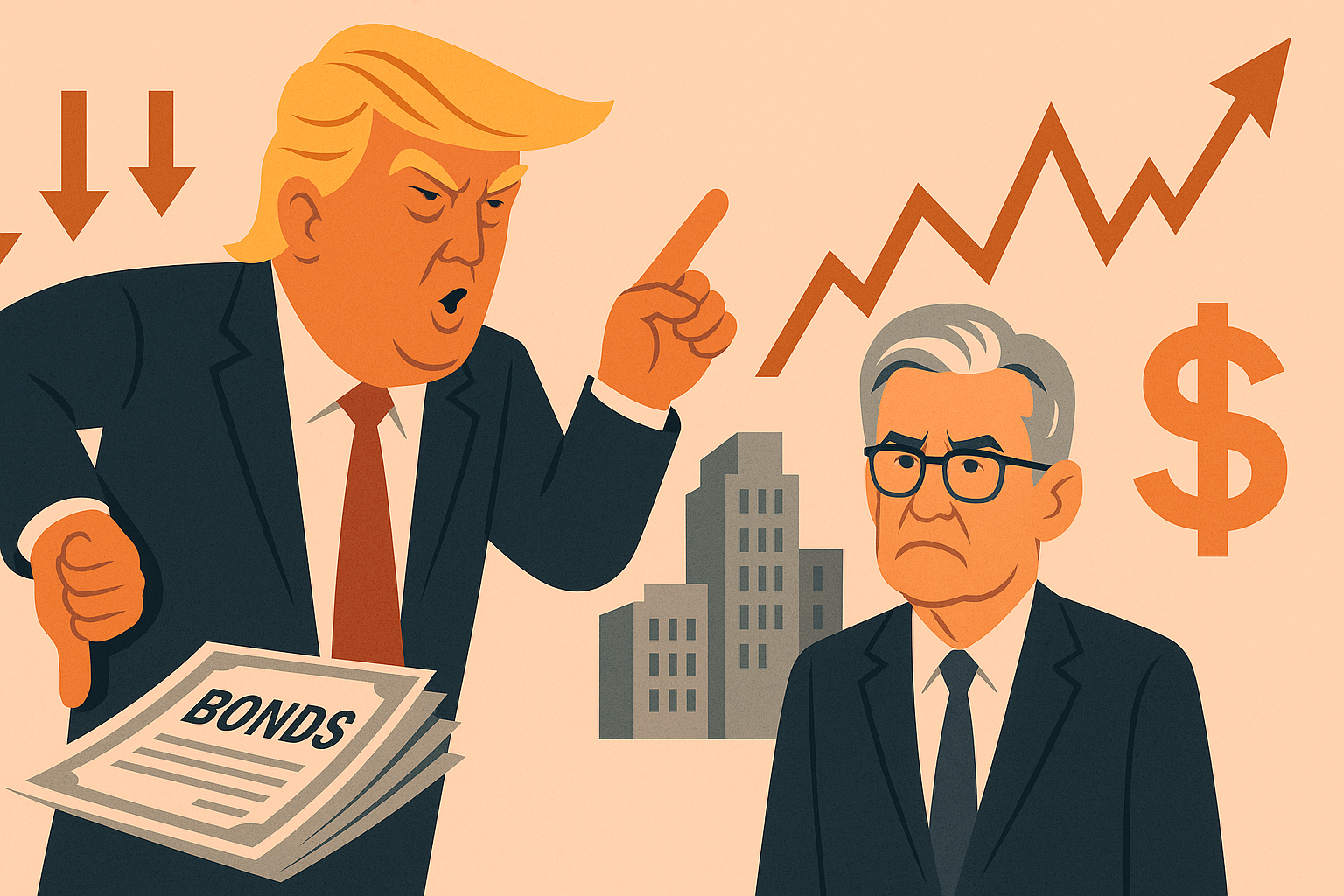As former President Donald Trump intensifies his attacks on the Federal Reserve and its chairman, Jay Powell, investors are sending a clear message: enough is enough.
Trump’s long-standing disdain for the Fed is rooted in his real estate background, which favors low interest rates to boost borrowing and investment. His economic philosophy leans heavily on cheap credit and high tariffs—pillars that clash with the Fed’s independent, inflation-conscious stance.
Over recent months, Trump has publicly insulted Powell—calling him a “numbskull” and “terrible” in the role—despite the irony that Trump himself appointed Powell to the position in 2018. The verbal barrage culminated this week in Trump hinting to Republican lawmakers that Powell may soon be ousted, triggering a sharp market reaction.
The dollar weakened, and long-term borrowing costs jumped—an unambiguous signal from the financial world: tampering with Fed independence could trigger serious consequences. Markets fear that replacing Powell with a loyalist willing to slash interest rates could lead to runaway inflation and destabilize the dollar’s global dominance.
Currently, the Fed’s key interest rate sits above 4.25%, far from Trump’s desired 1%—a rate more appropriate during financial crises. Despite political pressure, Powell has maintained a composed and principled stance, signaling his intent to remain in office until the end of his term in May and on the Fed’s board thereafter.
Trump’s criticisms, however, appear to serve more than just economic goals. Some observers see the attacks as political theater—a way to shift attention from controversies such as renewed scrutiny over documents linked to the late Jeffrey Epstein.
Beyond the headlines, the threat to Fed independence carries deeper risks. The Fed chair, while operating with a committee, wields substantial influence over interest rate policy, emergency lending tools, and global financial coordination. A politically motivated successor could undermine global trust in U.S. monetary policy and create chaos in markets already wary of geopolitical tensions and inflationary trends.
Even if Powell remains, concerns are rising over who might be next in line. Should Trump return to office and appoint a less experienced or ideologically driven chair, markets may face a turbulent transition.
For now, the bond market and investor reactions act as a critical check on political interference. By punishing reckless rhetoric with real-time financial consequences, markets are performing an essential civic function: defending institutional integrity.
In the delicate balance of global finance, one thing remains clear—respect for central bank independence is not optional. It’s fundamental.



